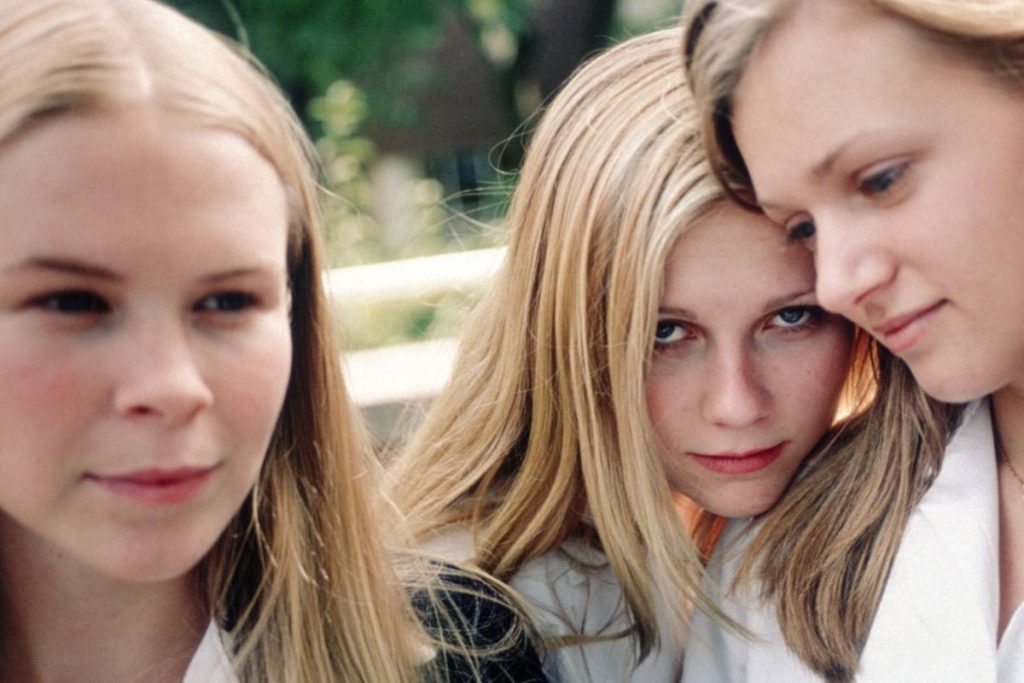
Is The Virgin Suicides Based on a True Story?
The movie The Virgin Suicides is based on a novel by Jeffrey Eugenides, but it is not directly based on a true story. While the plot is fictional, it touches on real-life themes like adolescence, family dynamics, and tragedy that resonate with many people. In the story, the five Lisbon sisters live in a strict and controlling household. As they grow up, the pressure they feel from their parents and society leads to their tragic suicides. The story takes place in the 1970s and is narrated by a group of neighborhood boys who were fascinated by the Lisbon sisters.
Though The Virgin Suicides is not a true story, its exploration of teenage struggles and the pressures of growing up feels very real to many viewers. Eugenides may have drawn inspiration from the world around him, but there is no specific real-life event that directly influenced the story.
Is Virgin Spring Based on a True Story?
No, The Virgin Spring is not based on a true story either. Directed by the legendary Ingmar Bergman, this 1960 Swedish film is set in medieval times and tells the story of a family’s tragedy and revenge after their daughter is brutally attacked. However, while the plot is not directly based on a true event, Bergman was inspired by Swedish ballads and folklore that tell similar stories. The film explores themes of guilt, revenge, and faith, but it is ultimately a work of fiction.
Is Jane the Virgin Based on a True Story?
The popular TV show Jane the Virgin is also not based on a true story. The series is a playful and satirical take on the telenovela genre. The show’s premise revolves around Jane, a young woman who is accidentally artificially inseminated, leading to a series of dramatic and comedic events. While the storyline may seem unbelievable, it’s all fiction, crafted for entertainment. The show embraces telenovela-style twists and turns, but it doesn’t claim to be based on real events.
Why Was The Handmaid’s Tale Banned?
The Handmaid’s Tale, written by Margaret Atwood, has faced bans and challenges over the years, particularly in schools. The main reason is its content, which includes graphic violence, sexual scenes, and themes that some consider inappropriate for younger audiences. Many people have objected to the way the novel portrays issues like control over women’s bodies, religion, and power.
Despite the controversy, The Handmaid’s Tale has remained a critical piece of literature because it speaks to social issues that are relevant even today. The story explores the dystopian future of Gilead, where women are reduced to their reproductive capabilities. The book forces readers to think about how society could shift if certain freedoms were taken away, which is why it has been both revered and banned.
Why Did Margaret Atwood Write The Handmaid’s Tale?
Margaret Atwood has explained that she wrote The Handmaid’s Tale as a response to the political climate of the 1980s. Atwood wanted to explore what might happen if extremist religious views and political power combined to strip away women’s rights. She has mentioned that all the oppressive acts described in the book have historical precedents, which adds a chilling reality to the dystopian future she created.
Atwood’s novel is a reflection on the dangers of totalitarian regimes, and it remains relevant today because it taps into ongoing conversations about gender equality, autonomy, and freedom.
Handmaid’s Tale Real-Life Parallels
Though The Handmaid’s Tale is fiction, there are unsettling parallels to real-life events and issues. In some parts of the world, women still face extreme restrictions on their rights and autonomy, especially concerning reproductive rights. The forced surrogacy and control over women’s bodies in Gilead mirror real-world practices that have occurred throughout history and continue to happen in certain regions.
Moreover, the political climate in many countries has drawn comparisons to Atwood’s dystopian world, as debates over women’s rights and freedoms remain at the forefront of social discourse. This is why The Handmaid’s Tale continues to resonate with readers decades after it was first published.
When Was The Handmaid’s Tale Published?
The Handmaid’s Tale was first published in 1985. At the time, the book was received as both a disturbing dystopian fiction and a powerful social commentary. Over the years, it has only grown in significance, especially with the success of the television adaptation.
How Many Handmaid’s Tale Books Are There?
There are two books in The Handmaid’s Tale series. The original novel was published in 1985, and its sequel, The Testaments, came out in 2019. The Testaments picks up the story 15 years after the events of The Handmaid’s Tale and explores the downfall of Gilead from the perspective of three female characters.
How Can Mary Be a Virgin If She Was Married?
This is a question that has been asked for centuries in relation to Christian teachings. According to the Christian belief, Mary, the mother of Jesus, was a virgin when she conceived Jesus. The doctrine of the Virgin Birth is central to many Christian denominations, which believe that Mary conceived Jesus through the Holy Spirit, not through a physical relationship with her husband, Joseph. While Mary was married, it is believed by Christians that she remained a virgin at the time of Jesus’ birth, and this belief is a cornerstone of many faith traditions.
The Handmaid’s Tale Season 6
Season 6 of The Handmaid’s Tale has been highly anticipated by fans, as the series continues to explore the oppressive world of Gilead. With each season, the stakes get higher, and viewers are eager to see how the characters’ stories will resolve. Although there’s no official release date yet, fans are speculating about where the show will go next. Will June finally bring down Gilead? What will happen to Serena Joy? These are the burning questions as the show prepares for its next chapter.
The Handmaid’s Tale Genre
The Handmaid’s Tale is classified as dystopian fiction, but it also crosses into speculative fiction. At its core, the story imagines a world where extreme societal and political changes have stripped away personal freedoms, particularly for women. The novel and TV series both offer chilling reflections on the dangers of authoritarianism, making it a staple of modern dystopian literature.
For readers seeking more information about true stories behind popular books and films, we recommend exploring Is True Story and other related sources. This article has examined some key questions surrounding The Virgin Suicides, The Handmaid’s Tale, and Virgin Spring. While none of these stories are based directly on real events, they all reflect issues and struggles that feel real to many.

I am Jeremy Jahns – Your Cinematic Explorer
Immerse in movie reviews, Hollywood insights, and behind-the-scenes stories.